High School Heroes: Tyrone Students on the Front Lines of COVID-19
photo courtesy of Alaina Heverly
Tyrone senior Zoey Hampton and junior Alaina Heverly are both essential workers at Epworth Manor in Tyrone.
Most TAHS students have been at home since Pennsylvania’s school shutdown on March 13. But for a select few, what was once just a common part time job has taken on new meaning, and new risk.
Teens with jobs at businesses deemed essential are putting themselves, and their families, at risk to maintain necessary services to the public.
We have no cases [of COVID-19] at Epworth and we take a lot of precautions. It is important to not ridicule someone in scrubs because you probably don’t know what is going on behind the scenes
— Alaina Heverly
Junior Alaina Heverly is one of several TAHS students on the front lines of the pandemic, working with the elderly at Epworth Manor in Tyrone. She has continued to report to her job as a dietary aide amidst the crisis. Her responsibilities include prepping meals, serving the residents, and cleaning the kitchen.
Nursing homes have been in the headlines since the beginning of the COVID-19 pandemic in the United States. Some of the first Coronavirus cases in the country occurred in Washington state at the Life Care Center nursing home in late February. At this facility, two thirds of the residents and 47 workers fell ill, and 35 people associated with the nursing home have died.
Closer to home, the Pennsylvania Department of Health has said that more than half of Pennsylvania’s 756 COVID-19 deaths have occurred at nursing home facilities across 35 counties.
Healthcare workers who interact with elderly patients are under increased pressure to prevent exposure to the virus. While everyone is susceptible, the virus is especially deadly to the older population.
According to Heverly, one of the biggest changes she has experienced is more limited interaction with the residents as a precautionary measure.
“The residents used to come into the dining rooms and talk to the dietary aides, but now we can only see a select few who walk in the hallways,” said Heverly.
Visitors have not been allowed in the home since March 13 and they are not accepting any new admissions at this time.
Another measure being taken to help protect the residents is the use of facemasks. While not foolproof, the extra precaution can help to protect the patients, even if it makes work more difficult.
“We work in a relatively hot kitchen. Having a mask covering your face and nose is not ideal. It gets really hot, especially toward the end of the night while washing dishes,” said Heverly.
Each time she arrives for work, Heverly must have her temperature taken and confirm that she has not experienced any symptoms of illness.
While the extra measures may be troublesome, what essential workers need during this difficult time is support from the community.
When asked what she wished more people knew about working through the crisis, Heverly said she wished that people understood that seeing someone at the store in scrubs is not a bad thing.
According to Heverly, since the virus outbreak, some treat people wearing scrubs in public like they are contagious.
“We have no cases [of COVID-19] at Epworth and we take a lot of precautions. It is important to not ridicule someone in scrubs because you probably don’t know what is going on behind the scenes,” said Heverly.
All of the people working and still providing services are automatically at a high risk of becoming infected and infecting their own families. A simple thank you goes a long way!
— Sarah Jackson
Junior Sarah Jackson is also serving her community through the COVID-19 epidemic by working as a cashier at The Village Pantry.
At least 41 supermarket workers have died as a result of COVID-19 and thousands have called off after showing signs of illness or other possible coronavirus-related complications.
Jackson noted that just like every other business, extra sanitation measures have been put in place to keep the public safe such as moving the buffet to the kitchen and offering a delivery service for those who are unable to shop in person.
These measures not only protect the customers, but also the workers.
Regardless, working with the public during this time is stressful and potentially risky.
“All of the people working and still providing services are automatically at a high risk of becoming infected and infecting their own families,” said Jackson, “a simple thank you goes a long way.”
While it may seem that there is no end in sight, it is vital to practice good hygiene, continue to support local businesses, stay inside when possible, and don’t forget to thank workers like Heverly and Jackson who are on the front lines of the pandemic.

This is Lucia’s fourth year in Eagle Eye and her third year as Photo Editor. She is very excited to express her creativity and find new ways to take...




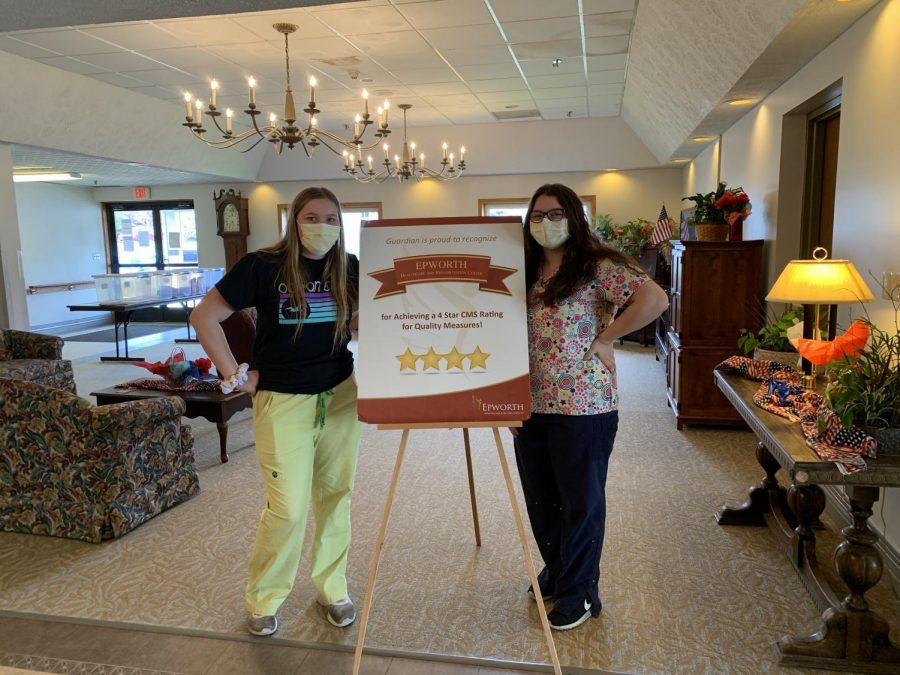

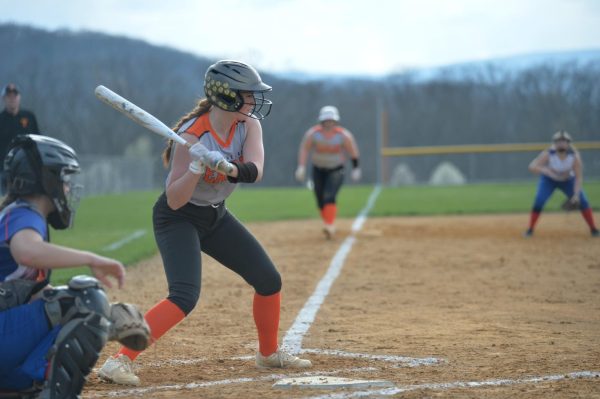

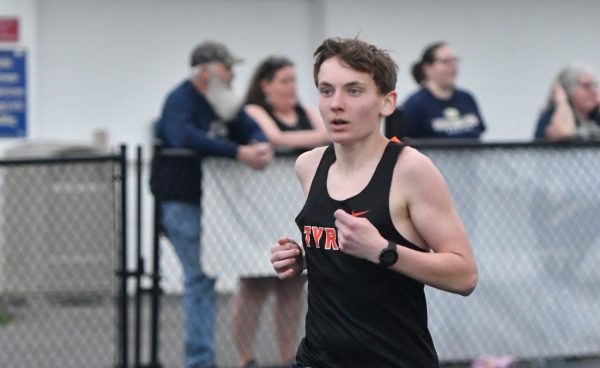
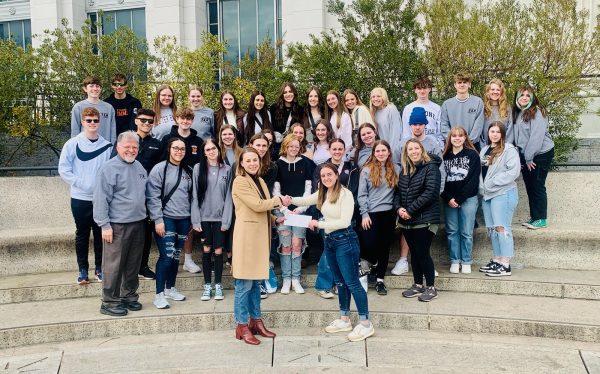
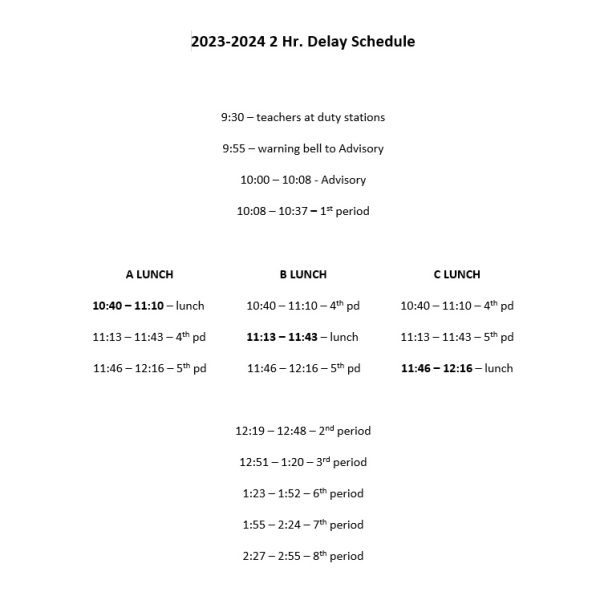
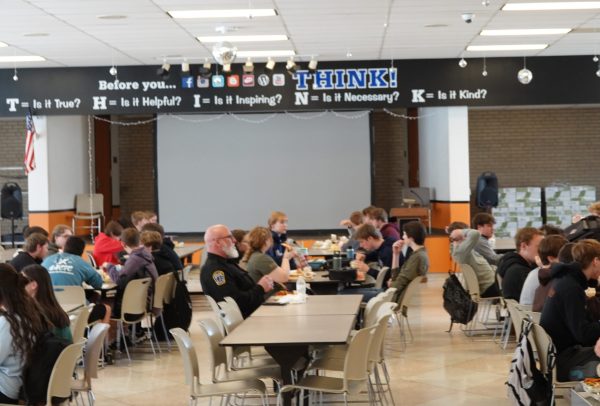

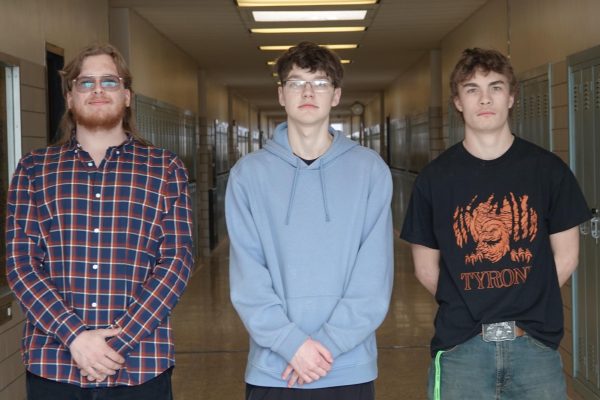

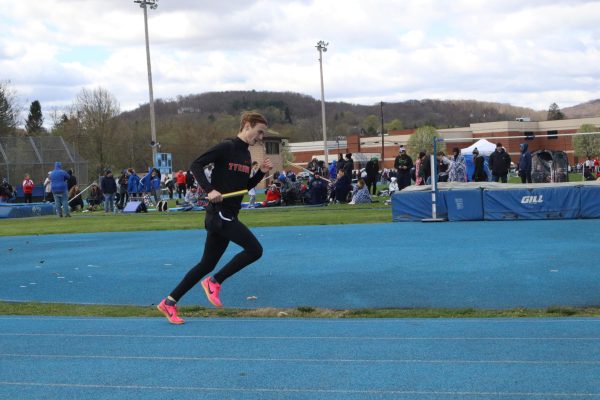

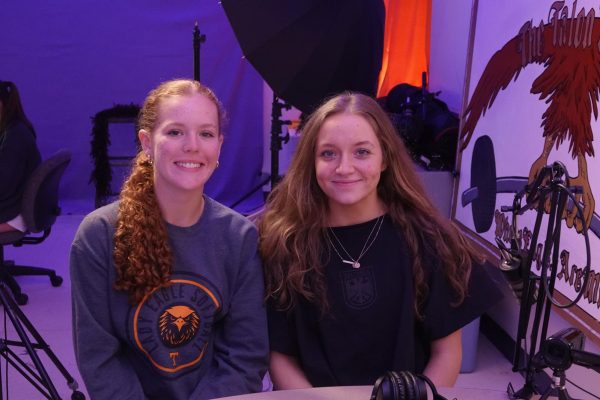
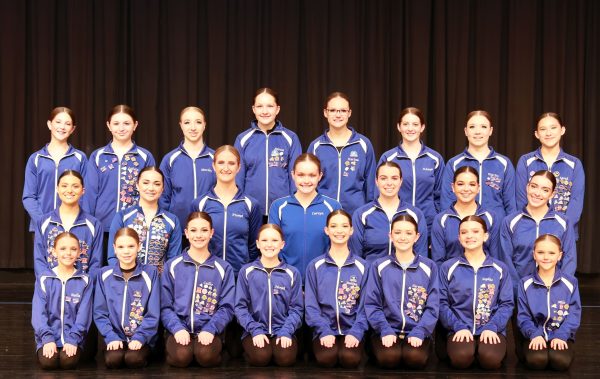
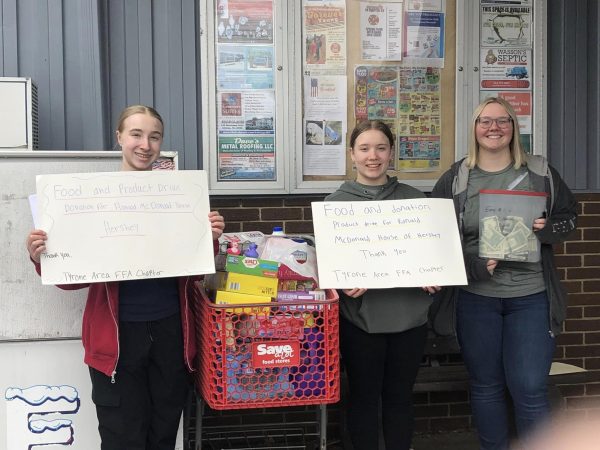
Dee Skelton • Apr 23, 2020 at 11:48 am
Great story! How many Tyrone & Bellwood students work at Epworth Manor?
Eagle Eye • Apr 23, 2020 at 12:17 pm
There are at least five current Tyrone students.